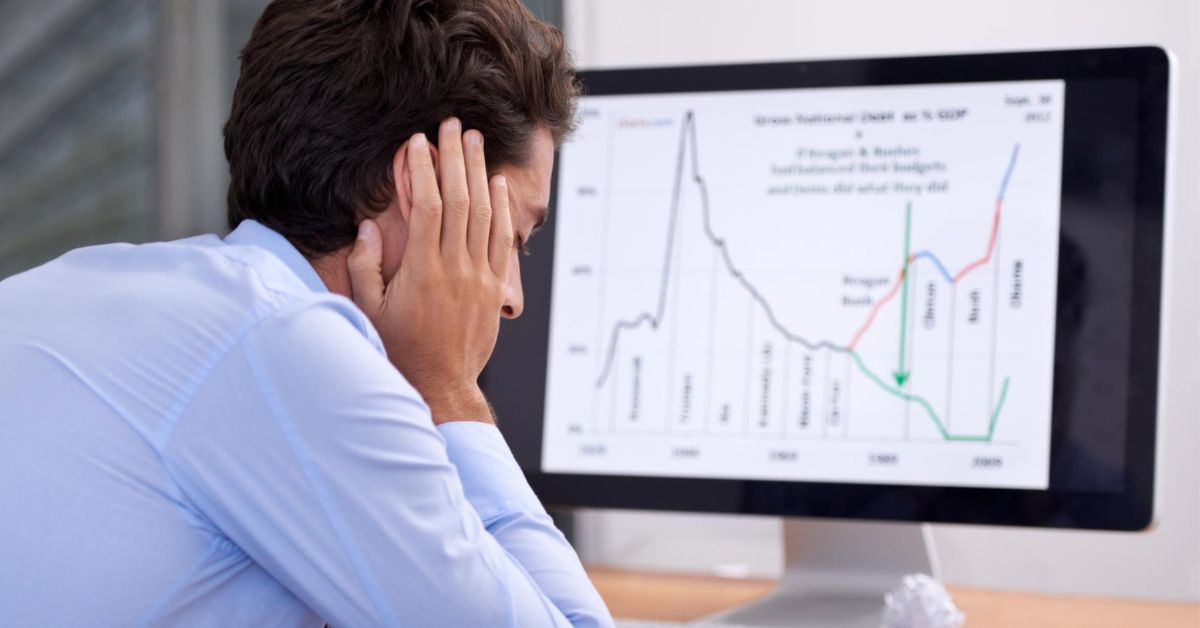It is essential for a trader’s success to understand trading psychology. Emotions can heavily influence decisions, often leading to costly mistakes. Traders need to understand emotions, especially fear, to master the art of trading. In trading, fear is one of the most common emotions, and it can paralyze traders. Whether you’re afraid of losing money or missing out on an opportunity, these feelings can cloud your judgment.
Platforms like Prime XBT offer reliable tools and resources to help manage fear and enhance your trading strategy. The platform gives traders access to advanced features that minimize the impact of fear on their decisions. So, join PrimeXBT today! Use promo code PRIMEOTT to receive a +7% bonus on your deposit. The first step to overcoming fear is to understand how it works and adopt strategies to combat it.
What is Fear in Trading Psychology?

Fear is a natural emotion, especially in trading. It often stems from uncertainty and the potential for loss and can manifest in various ways. Some traders may hesitate to enter a trade, fearing they might make the wrong decision.
Others may exit a trade too early, scared of potential losses. This fear-driven behavior can significantly impact trading performance.
One common fear is loss. Traders often worry about losing money, which can lead to overly cautious decisions. Another prevalent fear is the fear of missing out, known as FOMO. This can cause traders to jump into trades impulsively without proper analysis.
Fear of being wrong is also a significant issue. Traders may avoid taking necessary risks, fearing their decisions will be incorrect. Recognizing these fears is the first step to overcoming them. When traders identify what triggers fear, they can design strategies to manage it effectively.
The Impact of Fear on Trading Performance
Fear can severely affect a trader’s decision-making process. Such as:
Analysis Paralysis
Fear often causes traders to experience analysis paralysis. They overanalyze market data and hesitate to make decisions, which can result in missed opportunities and reduced profitability. Traders may second-guess themselves, leading to inaction, which can erode confidence in their trading abilities over time.
Impulsive Decisions
Fear can also drive impulsive decisions. Traders might enter or exit trades without proper analysis, acting on panic or anxiety. These hasty decisions often lead to unnecessary losses. Over time, impulsive behavior can become a habit, which can significantly undermine long-term trading success.
Psychological Cycle of Fear
Fear creates a damaging psychological cycle. Poor decisions lead to losses, which intensify fear. This cycle can be hard to break. As fear increases, confidence decreases. This decline in confidence makes it harder to trust one’s judgment, further perpetuating the cycle.
Erosion of Confidence
Fear gradually erodes a trader’s confidence. Repeated losses caused by fear-based decisions make traders doubt their abilities. As confidence diminishes, it becomes increasingly difficult to make sound trading decisions. Eventually, this loss of confidence can lead to complete withdrawal from trading.
Trading Withdrawal
In extreme cases, fear can lead to complete trading withdrawal. Traders overwhelmed by fear may choose to stop trading altogether. This withdrawal often results from prolonged anxiety and loss of confidence. Overcoming this stage requires rebuilding confidence and addressing the root causes of fear.
Strategies to Overcome Fear in Trading Psychology

A trader needs to overcome their fear to succeed. You can overcome fear in trading psychology by following several strategies:
Self-Awareness and Mindfulness
Self-awareness is the foundation of managing fear in trading. Recognize when fear is influencing your decisions and behaviors. This recognition is the first step in regaining control. Mindfulness techniques, such as deep breathing and meditation, can help you stay calm and focused.
Practicing mindfulness allows you to observe your emotions without being overwhelmed. You can reduce the impact of fear by staying present in the moment. This clarity enables more rational, well-thought-out decisions. Regular mindfulness practice can significantly improve your emotional control.
Developing a Solid Trading Plan
A well-structured trading plan is essential for managing fear. It provides clear guidelines for every trade, reducing uncertainty. A detailed plan includes specific entry and exit strategies. Knowing exactly when to enter or exit a trade prevents hesitation.
It reduces the likelihood of fear-driven decisions. Additionally, a solid plan should include risk management strategies. Consistently following your trading plan builds discipline. The discipline you develop will reduce your fear and increase your confidence as you trade.
Risk Management Techniques
Effective risk management is crucial to reducing fear in trading. Setting stop-loss orders protects you from significant losses. This safety net reassures you that your losses are limited. Position sizing is equally essential. Only risk a small percentage of your capital per trade.
This strategy ensures that no single trade can cause devastating losses. Proper risk management allows you to trade with less fear. Knowing that your risk is controlled reduces anxiety and encourages more calculated decisions.
Building Confidence Through Experience
Confidence in trading comes from experience. Start with simulated trading to practice without financial risk. It allows you to refine your strategies in a safe environment. As you gain experience, your confidence will naturally increase.
The more you trade, the better you’ll understand market dynamics. Over time, you’ll become more comfortable with taking calculated risks. Building confidence through experience helps reduce fear. Confident traders are less likely to make decisions based on fear.
Psychological Tools and Techniques
Psychological tools can be powerful in managing trading fear. Visualization techniques can mentally prepare you for various trading scenarios. Imagine yourself making successful trades to build confidence. Cognitive Behavioral Techniques (CBT) can help reframe negative thoughts.
Replace fear-inducing thoughts with positive, constructive ones. Keeping a trading journal is another effective tool. Record your emotions, decisions, and outcomes to identify patterns. Eventually, this practice helps you understand and manage your emotions better.
The Importance of a Support System

The ability to manage trading fear requires a robust support system. Such as:
Mentorship and Peer Support
Mentorship is invaluable in managing trading fear. Experienced mentors provide guidance and wisdom from their own trading experiences. They help you navigate complex market conditions. Mentors can offer personalized advice tailored to your trading style. Peer support groups also play a crucial role.
Sharing experiences with fellow traders creates a sense of community. Discussing your fears with others who understand can be comforting. Peer interactions provide different perspectives and solutions to common problems. Both mentors and peers contribute to reducing trading anxiety.
Professional Help
Sometimes, trading-related fear may require professional intervention. Consulting a trading psychologist can provide specialized strategies for managing fear. These professionals are trained to address psychological barriers in trading.
They offer techniques to reframe negative thoughts and build mental resilience. Professional help ensures that you address fear constructively. This support can lead to more effective fear management and better trading outcomes.
Our On Tilt Trading Store offers specialized trading psychology coaching designed to address and overcome fear. With personalized strategies and expert support, our coaching can help you improve your trading. Check out our store today and use promo code OTT10 to receive 10% off your order.
FAQs
Why do people fear trading?
People fear trading for several reasons. The potential for financial loss is a significant concern. Traders also worry about making wrong decisions and facing adverse outcomes. Market volatility and unpredictability can heighten anxiety.
Fear of missing out on profitable opportunities or making impulsive trades further contributes to stress. Additionally, past negative experiences can increase fear. Understanding these fears and managing them is crucial for successful trading.
How do you remove fear when trading?
Developing a solid trading plan is the first step to eliminating fear when trading. Clear guidelines and strategies help reduce uncertainty. To stay calm, practice mindfulness and self-awareness.
Stop-loss orders and position sizing are effective risk management techniques to control losses.
Build confidence through simulated trading and gaining experience. Additionally, consider seeking support from mentors or professional coaches. Regularly review and adjust your approach to address fear effectively.
Conclusion
Managing fear is essential for successful trading. Implementing effective strategies and understanding your fears can help you improve your trading performance. Making a solid plan, practicing mindfulness, and managing risks are essential. Gaining confidence and seeking support further enhance your ability to cope with fear.
Are you tired of losing money because of panic selling, FOMO, overtrading, and bag holding? We recommend the Vestinda trading app. It helps eliminate emotional decision-making with automated crypto trading strategies. This app can improve your trading decisions and boost confidence.



